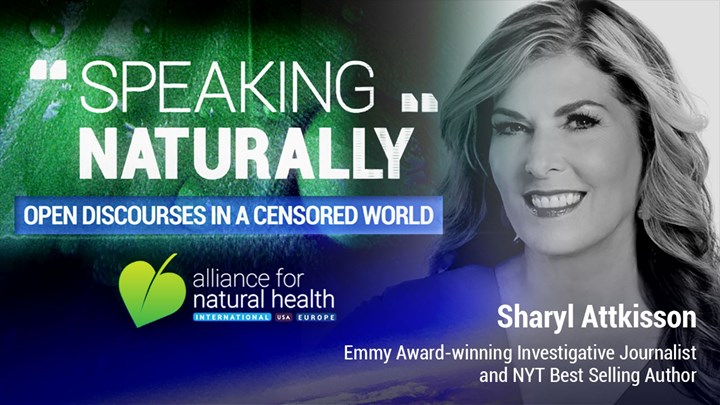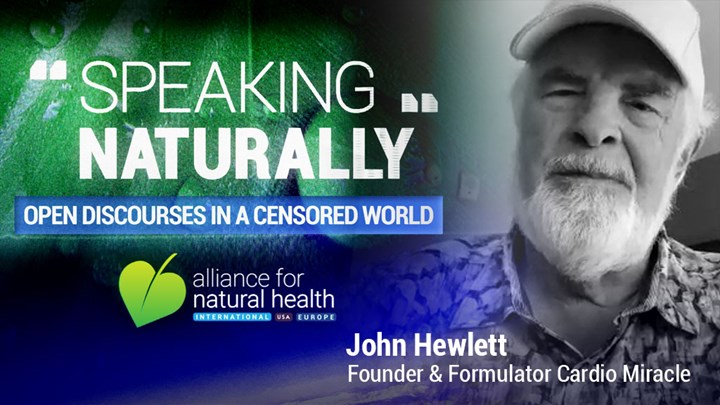Dutch Parliament restricts glyphosate use
The Dutch have taken an unprecedented step and will ban sales of glyphosate herbicides to private individuals in the Netherlands from the end of 2015. Dutch Member of Parliament Esther Ouwehand, who submitted the motion together with Gerard Schouw, said: “In garden centres RoundUp is promoted as harmless, but unsuspecting customers have no idea what the risks of this product are. Especially children are sensitive to toxic substances and should therefore not be exposed to it”.
Health concerns about glyphosate, a key ingredient of Roundup — as well as Roundup itself, are increasing worldwide. It has been associated with many different harmful health and environmental effects. Just this week reports are out confirming that glyphosate herbicide has been found in the breast milk of American mothers! Other countries that have been contemplating bans include Brazil, Sri Lanka (now back-tracking on this) and El Salvador.
How Big Pharma controls medical education, research and clinical practice
The Journal of the American Medical Association (JAMA) has revealed in a new study that one or more academic medical center (AMC) leaders are present on the boards of 16 out of the 17 largest US pharmaceutical companies. As pharma directors these AMC leaders “hold a fiduciary responsibility to shareholders to promote the financial success of the company, which may conflict or compete with institutional oversight responsibilities and individual clinical and research practices”. They also “wield considerable influence over research, clinical, and educational missions”.
The study, entitled “Academic Medical Center Leadership on Pharmaceutical Company Boards of Directors”, collected data from the websites of the world’s 50 largest pharma companies based on prescription drug sales for 2012. Details of AMC board members’ “financial compensation” was also obtained, and the resulting disturbing picture was detailed of pharma influence over medical schools, research and clinical practice. More detail can be found in ProPublica.
Green groups and anti-fracking demonstrators deemed ‘terrorists’ in Canada
It seems that Canadians who are simply concerned about the environmental and health effects of oil and gas production are now defined as “terrorists” by the Canadian government, and a “threat to national security”. It’s now being widely reported, though initially in the UK’s Guardian newspaper, that Jeffrey Monaghan of the Surveillance Studies Center at Queen’s University in Kingston, Ontario, has seen security documents recently released under freedom of information laws. Though we are unable to see Monaghan’s report for ourselves, he is quoted as saying: “It’s the new normal now for Canada’s security agencies to watch the activities of environmental organizations”. This is said to apply to those “who protest against the resource-based economy of the country, especially the fields of oil and gas production”.
The Guardian also reported “Surveillance and infiltration of environmental protest movement has been routine in the UK for some time. In 2011 a Guardian investigation revealed that a Met police officer had been living undercover for seven years infiltrating dozens of protest groups”.
Do laboratory escapes start pandemics?
An article by Martin Furmanski entitled “Threatened pandemics and laboratory escapes: Self-fulfilling prophecies” has recently been published. Furmanski is a medical doctor and medical historian, trained in “pathology and laboratory medicine, including microbiology and toxicology”, and his research interests are “investigating the development, use, and allegations of use of chemical and biological weapons”. He writes “The risk of a manmade pandemic sparked by a laboratory escape is not hypothetical: Many laboratory escapes of high-consequence pathogens have occurred. Ironically, these laboratories were working with pathogens to prevent the very outbreaks they ultimately caused”. Furmanski doesn’t appear to suggest that any of these laboratory escapes are deliberate, but the possibilities for this are left wide open.
His essay is a summary of a more detailed review of the historical record, with scientific references, published in February 2014.
A year without sugar — one family’s success story
After discovering information about the harmful effects of sugar, an American family decided to embark on an ultimately life-changing year-long adventure and eliminate all added sugar from their diets. Worrying statistics such as 1:7 Americans has metabolic syndrome, 1:3 Americans are obese, cardiovascular disease is America's number one killer and the rate of diabetes is skyrocketing led the family to cut out any foods with added sugar or sugar substitutes. The only sweetness allowed in their diet was from naturally-occurring sugars in the food itself and one sweet-treat a month. The rewards include feeling healthier, stronger and more energetic, less sick days, quicker recovery times from illness, and a much more sensitive palate. The family even found that when they had their monthly treat, it became less and less of a ‘treat’ and ended up giving them headaches, loss of energy, sore teeth and heart palpitations! Their year is up, but there’s no turning back for this family. Read their story and give it a go!
Aspirin not the pre-op cardiovascular caregiver it’s made out to be
Taking aspirin does NOT prevent heart attacks following non-cardiac surgery, and in fact causes increased risk of bleeding, so says a new study published in the New England Journal of Medicine. The study analysed data from patients in 23 countries who received aspirin or a placebo before surgery such as hip replacements or bowel operations. Although the number of heart attacks or deaths from a heart attack within 30 days of surgery were similar in both groups, 4.6% of the aspirin group had significant bleeding after surgery compared with 3.7% in the placebo group. The take home point of the study is that in most cases patients should stop taking aspirin before surgery. This advice follows another study in the same journal regarding the drug clonidine that was found to increase the risk of clinically important hypotension (low blood pressure) and non-fatal heart attacks. It’s generally used for high blood pressure, ADHD, anxiety/panic disorder, and certain pain conditions.
GMO contamination effects 1 out of 3 Organic Farmers
Food and Water Watch and the Organic Farmers’Agency for Relationship Marketing (OFARM) in partnership have issued the results of a recent survey regarding the contamination effects of GMO crops on organic farmers. The outcome of the survey is that organic and non-GMO farmers are suffering unfairly due to financial ramifications caused by GMO contamination, a breakdown in relations with neighbouring GM farmers, and the burden of longer working hours with an increased workload. Nearly one third (31%) of the farmers surveyed reported the presence of GMOs in their crops, and 52% had had their corn rejected by their buyers due to GMO presence. The median cost to an organic farmer due to load rejection is $4,500 and one farmer reported losses up to $367,000 in one year. The survey results are clear, contamination is an issue and is definitely happening. Organic farmers don’t believe that coexistence can be successful and believe that Biotech and seed companies should be held accountable for all losses associated with GMO contamination. Read the full PDF report on the Food and Water Watch website.
Cancer Research UK uses fancy footwork to knock organic food
The British Journal of Cancer reports in a new study that women eating an organic or mostly organic diet are no less likely to develop cancer than women who eat a more conventional diet. The study, conducted by Cancer Research UK scientists from the University of Oxford, studied 600,000 women and found no difference in overall cancer risk, except for a reduction in the risk for non-Hodgkin lymphoma in women who mostly ate organic food.
Peter Melchett, director of policy for the Soil Association, has criticised the study saying, “We find it strange that a 21% decrease in non-Hodgkin lymphoma cancer, among women who reported usually or always eating organic food, is being so readily dismissed by Cancer Research UK.” He also questioned the advice given to those concerned about pesticide residue by Cancer Research UK’s health information manager, Claire Knight, of simply washing produce before eating it commenting, “we’d be interested to know how she [Knight] expects consumers to wash loaves of bread.” Mr Melchett goes on to point out a number of weaknesses in the study, including the fact that the women’s body mass indices and physical activity were only measured once.








Comments
your voice counts
11 May 2016 at 9:53 am
I am so grateful to find your particular post. I have bookmarked this website and I will keep visiting you for further such interesting posts
Your voice counts
We welcome your comments and are very interested in your point of view, but we ask that you keep them relevant to the article, that they be civil and without commercial links. All comments are moderated prior to being published. We reserve the right to edit or not publish comments that we consider abusive or offensive.
There is extra content here from a third party provider. You will be unable to see this content unless you agree to allow Content Cookies. Cookie Preferences